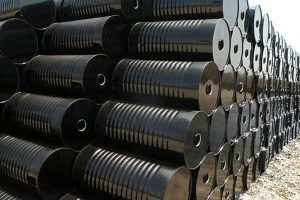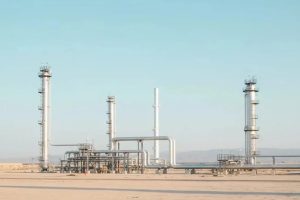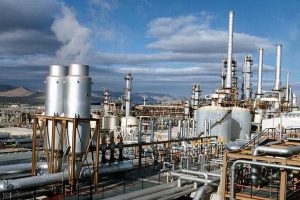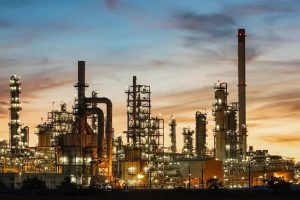What is gasoline? Types + Uses and Production Process
What is gasoline? Gasoline is a light, flammable liquid that oil refineries produce from crude oil, and consumers mainly use it to power internal combustion engines in vehicles. Besides serving as a fuel source, gasoline has other applications such as a solvent, an energy source for electric generators, and fuel in agriculture.
But what exactly are the properties and structure of gasoline, and how many types of gasoline exist? If you wish to know more, read this article from the Iran ETrade blog, a specialised source for petroleum product price updates.
What is Gasoline?
Refineries produce the components of gasoline, and blending terminals mix these components with ethanol and other additives to prepare gasoline in different grades and qualities for sale at fuel stations.
What is gasoline? In previous articles, we explained what crude oil is. Now, for gasoline, refineries produce it from crude oil and other petroleum liquids, and its main use is to power vehicle engines.
Almost all gasoline products contain a percentage of ethanol to meet environmental requirements and reduce dependence on imported oil. But what are the chemical components of gasoline?
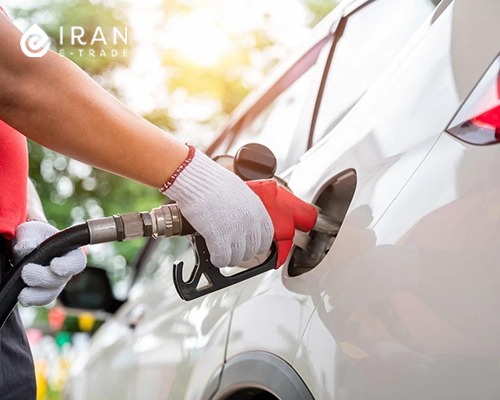
Chemical Composition of Gasoline
Do you know the chemical composition of gasoline? Gasoline consists of hundreds of combustible hydrocarbons, most of which are saturated. These compounds contain 4 to 12 carbon atoms per molecule and have a boiling point of 30 to 200 degrees Celsius.
The quality of gasoline fuel is determined by its octane rating. In addition, gasoline formulas are usually blended with a percentage of ethanol to meet environmental standards and enable a small volume of fuel to produce a high amount of energy.
Gasoline is a light, flammable liquid derived from crude oil distillation and serves as the most important fuel for internal combustion engines. It has hundreds of hydrocarbons, and factors such as density, vapor pressure, sulfur content, and octane number determine its quality. Gasoline is produced in regular, premium (Euro), and super grades, while refinery processes like distillation, reforming, cracking, and blending improve its performance. Furthermore, its everyday applications include powering vehicles, electric generators, light aircraft, agricultural equipment, and industrial solvents. Moreover, compliance with Euro standards reduces pollution and environmental damage.
What are the properties and characteristics of gasoline?
Now that we have talked a little about gasoline and its chemical composition, let us examine its specifications and features:
1. Density
What is gasoline density? Producers and experts measure gasoline density with a pycnometer or a hydrometer and usually report it at 15 degrees Celsius and atmospheric pressure.
The denser the gasoline is, the less of it consumers need to use, which makes this property more desirable for consumption.
2. Gasoline Vapor Pressure
What is the vapor pressure of gasoline? Experts measure gasoline vapor pressure with a Reid Vapor Pressure device to determine its volatility. Higher volatility allows the fuel to burn more effectively and completely.
However, when the vapor pressure of gasoline becomes too high, the fuel evaporates faster and produces more pollution. Therefore, keeping vapor pressure at an optimal level is important.
3. Resin in Gasoline
Producers and experts try to keep the resin in gasoline below 0.1 grams per litre so that pipes and pumps do not clog and the octane rating of the fuel does not decrease.
Now that you know why the amount of resin in gasoline matters, as a consumer, you should also use gasoline quickly and avoid storing it for long periods to prevent excess resin from forming in it.
4. Sulfur Content
Experts strive to minimize the sulfur in gasoline to prevent fuel tank and engine corrosion, air pollution, and a decrease in octane rating. In this way, using low-sulfur gasoline helps preserve the lifespan of vehicle components and protects the environment.
5. What Is the Octane Number of Gasoline?
What is gasoline octane number? Experts measure the octane number of gasoline to determine its combustion quality in internal combustion engines. The higher the number, the smoother and better the fuel burns.
Some fuel additives can also increase the octane number; therefore, based on the octane number, gasoline is categorized into two types: regular and super.
6. Gasoline Color
The color of gasoline can change over time, and its darker color indicates fuel oxidation. As a result, experts can assess gasoline quality by observing its color, since color changes may cause precipitation and reduce engine performance.
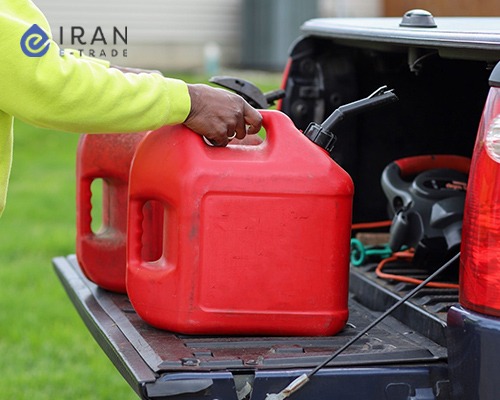
Types of Gasoline
In the previous section, we discussed the properties of gasoline. Now, let’s see what types of gasoline exist. Depending on their composition, gasoline falls into three categories:
1. Regular Gasoline
Normal or regular gasoline, also known as 87-octane fuel, is a blend of short-chain hydrocarbons and additives that improve its performance and stability.
This type of gasoline suits most everyday vehicles with low to medium-level engines, and its affordable price makes it an attractive choice for drivers looking for lower-cost fuel.
2. Premium or Euro Gasoline
What is gasoline with premium quality? Experts label Euro gasoline with an octane number of 91 or 93 and add higher-quality hydrocarbons along with detergent additives to keep the engine clean.
Consumers use this fuel for small, sports, or high-performance vehicles to achieve greater power, cleaner combustion, and better engine protection.
3. Super Gasoline
Experts produce 95-octane super gasoline to help engines resist premature detonation and maintain vehicle performance. As a result, this fuel suits engines that require higher knock resistance.
How Gasoline Is Produced
What are the steps of gasoline production? Gasoline production involves several stages, which include:
1. Crude Oil Distillation and Separation
Experts distil crude oil at refineries to separate hydrocarbons based on their boiling points and isolate different parts, such as gasoline. Then, they process these fractions and blend them with other materials to produce the final usable product.
2. Reforming Process
What is gasoline reforming process? In the reforming stage, experts use catalysts to change the structure of gasoline hydrocarbons, increasing its octane number and reducing the risk of premature detonation. This process allows vehicle engines to burn fuel more efficiently and take less damage.
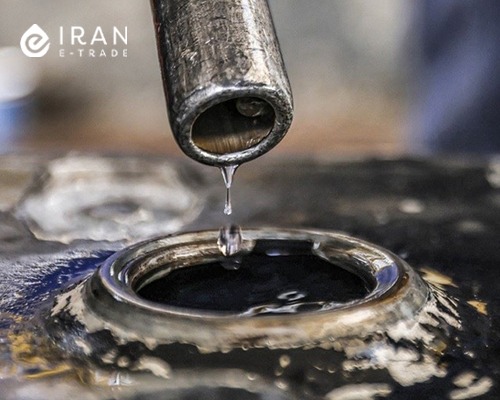
3. Cracking Process
Why is the cracking process important in gasoline production? Experts put gasoline through the cracking stage to break down hydrocarbon molecules into smaller, lighter ones. This increases the octane number and quality of gasoline, resulting in better performance in vehicle engines.
4. Blending
In the blending stage, experts mix additives with gasoline to ensure the final product meets the desired standards. Consumers can then obtain and use this gasoline at industrial facilities or fuel stations.
What Are the Uses of Gasoline?
Depending on its properties and characteristics, gasoline has various uses. But what exactly are these uses?
1. Fuel for Cars and Vehicles
What is gasoline’s use in vehicles? You can use gasoline as fuel for car engines, motorcycles, and small trucks to provide enough energy for their movement. Additionally, gasoline is suitable for vehicles that require higher performance.
2. Industrial Solvent
What is the industrial solvent use of gasoline? You can use gasoline as an industrial solvent to dissolve oils and fats or in cleaning and manufacturing processes. Additionally, its volatile nature allows it to evaporate quickly, making tasks easier.
3. Fuel for Light Aircrafts
For light aircrafts with piston engines, high-octane aviation gasoline is suitable to ensure maximum engine performance. This fuel allows the engine to operate more efficiently and reliably.
4. Fuel for Power Generators
What is the use of gasoline for power generators? If you live in an area without access to the electrical grid, you can use gasoline-powered generators to produce electricity. These generators provide enough energy to power electrical devices on a small scale.
5. Fuel for Agriculture
What is gasoline’s use in agriculture? In agriculture, you can use gasoline to power tractors, water pumps, and other farm machinery. Gasoline’s strong combustion and easy availability improve the performance of agricultural equipment and make work easier.
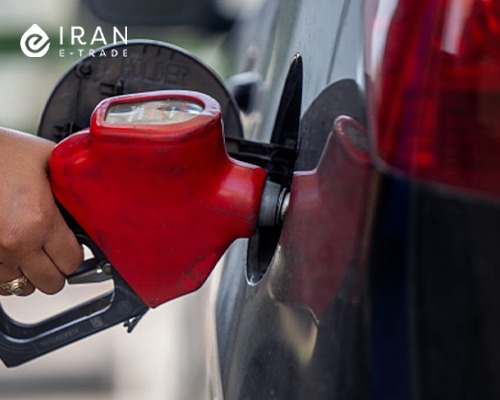
The Relationship Between Gasoline Octane Number and Its Quality
The octane number of gasoline indicates its quality, and the higher the number, the better the fuel burns in the engine with smoother combustion. Using gasoline with an appropriate octane number prevents engine knocking and improves vehicle performance.
Is High-Octane Gasoline Always the Best Choice?
Using high-octane gasoline is not always the best choice and depends on the vehicle’s engine design.
For example, in engines designed for low-octane fuel, high-octane gasoline has little benefit and may increase costs. However, in advanced or sports engines, this fuel can ensure optimal engine performance and combustion.
Standards for Controlling Gasoline Emissions
Gasoline contains hundreds of different substances that can produce gases and compounds when burned, polluting the air and threatening human health. For this reason, countries have established strict laws to control pollutant levels and gasoline quality.
But what exactly are gasoline emission standards? Standards such as Euro 1 to Euro 6 in the European Union set limits on pollutants to ensure that produced fuel and fuel stations comply with these regulations.
Environmental Impact of Gasoline
What is gasoline’s impact on the environment? If the gasoline you use is low quality and has high emissions, it can have harmful effects on the environment and negatively affect your health.
Harmful Effects of Pollutants on Human Health and the Environment
Overall, the effects of pollutants and low-quality gasoline on human health and the environment are significant and can include:
- Neurological and psychological issues such as depression and irritability
- Skin problems, including itching, eczema, and inflammation
- Damaging the lungs and increasing the risk of asthma
- Increasing the risk of heart disease and strokes
- Causing eye irritation and burning
- Fertility problems
Additionally, these pollutants contribute to air pollution and pose widespread risks to all living organisms.
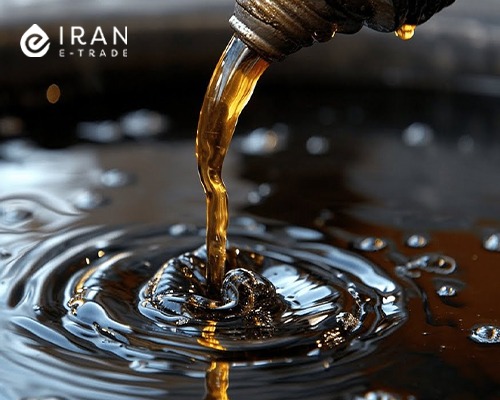
Frequently Asked Questions Regarding What is Gasoline
In this section, we answer some common questions related to what gasoline is:
What Is Gasoline?
Gasoline is a mixture of light and volatile hydrocarbons obtained from crude oil distillation and serves as the primary fuel for internal combustion engines.
What Are the Uses of Gasoline?
Gasoline has various uses, such as fuel for cars, power generators, and small aircraft. It is also used for agricultural fuel and as an industrial solvent.
Why Is High-Octane Gasoline Better?
High-octane gasoline resists engine knocking more effectively. Also, with smoother combustion, it improves the performance of advanced engines while reducing fuel consumption.
Can All Vehicles Use High-Octane Gasoline?
What is the requirement for using high-octane gasoline? Not all vehicles can benefit from high-octane gasoline, as this type of fuel is designed only for specific engines and increases costs in other vehicles.
Why Does Gasoline Cause Air Pollution?
What is gasoline’s effects of air pollution? When gasoline burns, it releases harmful gases such as carbon monoxide, nitrogen oxides, and sulfur compounds. These substances are the main contributors to air pollution and pose a threat to human health and the environment.
Are Lead-Free Super Gasolines Better Than Regular Gasoline?
Yes, lead-free super gasolines improve engine performance due to their higher octane number and absence of lead. They produce fewer emissions and cause less harm to human health and the environment.
How Can Gasoline Quality Be Improved?
Gasoline quality is improved by upgrading its refinery equipment, reducing pollutants such as sulfur and lead, and adding high-quality substances to increase the octane number.
What Is Gasoline Daily Use?
The daily uses of gasoline mainly include fueling cars, motorcycles, generators, and some agricultural and industrial equipment.
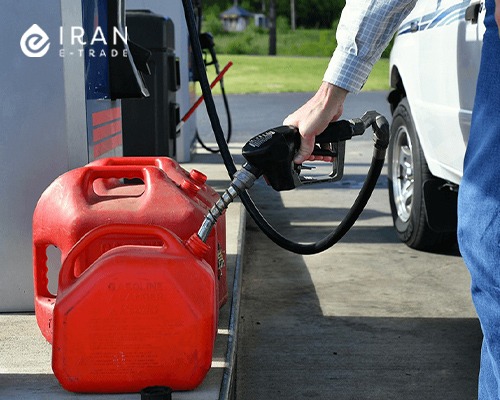
source: chandra-asri, eia
Bitumen Price
- Bitumen Suitable for Hot Climates: Benefits + Key Technical Tips
- How to Use Nano Bitumen: Properties & Applications + Method...
- Petroleum Products and Petroleum Derivatives: Introduction + Uses
- Oil Refineries in Iran: Complete List + Comparison
- Gasoline Producing Refineries in Iran: 12 Major Refineries
- Largest Oil Producers in the World: The Top 13 Countries...



